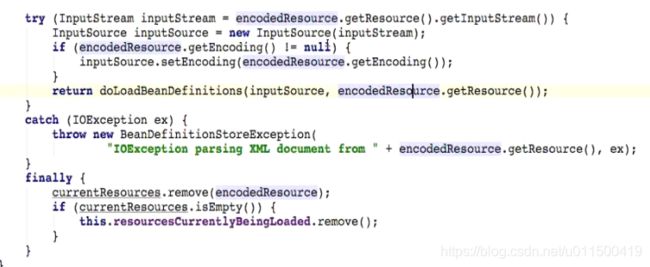- Java灵魂拷问13个为什么,你都会哪些?
大家好,我是V哥。今天看了阿里云开发者社区关于Java的灵魂拷问,一线大厂在用Java时,都会考虑哪些问题呢,对于工作多年,又没有大厂经历的小伙伴不妨看看,V哥总结的这13个为什么,你都会哪些?先赞后看,绝不摆烂。1.为什么禁止使用BigDecimal的equals方法做等值比较?BigDecimal的equals方法在等值比较时存在一些问题,通常不建议直接使用它来判断数值的相等性。下面是主要原因
- 前后端分离VUE3+Springboot项目集成PageOffice核心代码
wqqqianqian
springbootjavapageofficevue在线编辑
后端Springboot项目在项目的pom.xml中通过下面的代码引入PageOffice依赖。pageoffice.jar已发布到Maven中央仓库,建议使用最新版本。com.zhuozhengsoftpageoffice6.3.3.1-javax在项目的启动类Application类中添加一项@Bean配置,此为PageOffice服务器端的必要配置,代码如下:@Value("${posysp
- 前后端分离VUE+Springboot项目集成PageOffice核心代码
wqqqianqian
springbootvuepageoffice在线编辑
后端Springboot项目在项目的pom.xml中通过下面的代码引入PageOffice依赖。pageoffice.jar已发布到Maven中央仓库,建议使用最新版本。com.zhuozhengsoftpageoffice6.3.3.1-javax在项目的启动类Application类中添加一项@Bean配置,此为PageOffice服务器端的必要配置,代码如下:@Value("${posysp
- Springboot毕设项目动物园售票管理系统96zau(java+VUE+Mybatis+Maven+Mysql)
韩元计算机毕设
mybatisjavaspringboot
项目运行环境配置:Jdk1.8+Tomcat8.5+Mysql+HBuilderX(Webstorm也行)+Eclispe(IntelliJIDEA,Eclispe,MyEclispe,Sts都支持)。项目技术:Springboot+mybatis+Maven+Vue等等组成,B/S模式+Maven管理等等。环境需要1.运行环境:最好是javajdk1.8,我们在这个平台上运行的。其他版本理论上也
- 大厂面试系列:JVM中有哪些内存区域,分别都是用来干嘛的?
石杉的架构笔记
面试求职java面试jvm内存划分类加载
添加VX:ruyuan0220,回复:CSDN,领取更多精品学习资料!目录背景知识大厂面试背景引入到底什么是JVM的内存区域划分?存放类的方法区执行代码指令用的程序计数器Java虚拟机栈Java堆内存核心内存区域的全流程串讲其他内存区域本文小结背景知识我们先聊了一下相关的背景知识:JVM类加载这块的机制,简单介绍一下。大家需要搞明白的是,在什么情况下会触发类的加载?加载之后的验证、准备和解析分别是
- 【2023华为OD-C卷-第三题-跳马】100%通过率(JavaScript&Java&Python&C++)
塔子哥学算法
java华为odc语言
本题已有网友报告代码100%通过率OJ&答疑服务购买任意专栏,即可私信博主,获取答疑/辅导服务题目描述马是象棋(包括中国象棋和国际象棋)中的棋子,走法是每步直一格再斜一格,即先横着或直着走一格,然后再斜着走一个对角线,可进可退,可越过河界,俗称马走“日”字。给定mmm行n
- 【蓝桥杯】CB组国二攻略(省赛地点:广东)
好心的小明
蓝桥杯职场和发展
1.赛事介绍(针对深大)蓝桥杯是深大的二类竞赛,在计软国一二三保研分别加6,4,2分,国一国二能申请双创一等奖学金,国三能申请双创二等还是三等有点忘了(其实在申请的时候直接申请一等就行了,学院会根据你奖项的实际能申请的奖项给你调整的)。蓝桥杯有很多个组别,有软件组和硬件组,其中软件组针对不同编程语言分组,其中C/C++组人最多,竞争相对较大。JAVA组和Python组人相对较少,竞争可能稍微小一点
- 华为OD机试E卷 - 跳马(Java & Python& JS & C++ & C )
算法大师
最新华为OD机试java华为odpythonjavascriptc语言c++华为OD机试E卷
最新华为OD机试真题目录:点击查看目录华为OD面试真题精选:点击立即查看题目描述输入m和n两个数,m和n表示一个m*n的棋盘。输入棋盘内的数据。棋盘中存在数字和"."两种字符,如果是数字表示该位置是一匹马,如果是"."表示该位置为空的,棋盘内的数字表示为该马能走的最大步数。例如棋盘内某个位置一个数字为k,表示该马只能移动1~k步的距离。棋盘内的马移动类似于中国象棋中的马移动,先在水平或者垂直方向上
- 身份证实名认证功能的快速实现方法-Java接口集成
OCR_API
接口java开发语言
身份证实名认证接口是互联网在线平台为了确保用户身份真实性而采用的一种验证方式是,想要实现该功能,看似很难,其实有许多第三方服务商提供身份证实名认证接口,如:翔云API等,实时联网权威数据源,支持多并发核验身份证的真伪。集成API流程:对于有身份证实名认证功能需求的用户而言,注册账号,就会有唯一的key和secret,选择需要的产品id,然后根据自身需要的代码语言进行集成,以Java为例:packa
- 2025java面试常见八股文整理
Java八股文面试
面试职场和发展javaspringbootjvmspringspringcloud
1.多线程编程下,怎么解决线程的数据安全问题?如果线程存在竞争临界资源,多线程访问下添加同步代码块synchronized解决,或者分布式排他锁进行临界资源控制。在分布式多线程环境下,线程的数据安全尽量不要产生连接资源,使用线程本地化ThreadLocal实现线程资源隔离。2.SpringIOC依赖注入怎么理解,spring有几种方式属性注入,setter构建pojo实体类和有参构造方法工厂方法注
- 华为OD机试E卷 --跳马--24年OD统一考试(Java & JS & Python & C & C++)
飞码创造者
最新华为OD机试题库2024华为odjavajavascriptpythonc语言
文章目录题目描述输入描述输出描述用例题目解析JS算法源码Java算法源码python算法源码c算法源码c++算法源码题目描述马是象棋(包括中国象棋和国际象棋)中的棋子,走法是每步直一格再斜一格,即先横着或者直者走一格,然后再斜着走一个对角线,可进可退,可越过河界,俗称"马走日"字。给定m行n列的棋盘(网格图),棋盘上只有棋子象棋中的棋子“马”,并且每个棋子有等级之分,等级为k的马可以跳1~k步(走
- 【2023最新Java大厂面试题】——MyBatis面试题,看完拿捏面试官
Java凤梨
Java金三银四面试题mybatisjava面试
全套Java金三银四面试题持续更新可文末自取,建议关注收藏不然下次找不到哟~目录1、什么是Mybatis?2、Mybaits的优点:3、MyBatis框架的缺点:4、MyBatis框架适用场合:5、MyBatis与Hibernate有哪些不同?6、#{}和${}的区别是什么?7、当实体类中的属性名和表中的字段名不一样,怎么办?8、模糊查询like语句该怎么写?9、通常一个Xml映射文件,都会写一个
- 使用arthas监控诊断java应用
handsomestWei
后端java开发语言
使用arthas监控诊断java应用简介arthas是阿里的一款线上监控诊断产品,通过全局视角实时查看应用load、内存、gc、线程的状态信息,并能在不修改应用代码的情况下,对业务问题进行诊断,包括查看方法调用的出入参、异常,监测方法执行耗时,类加载信息等,大大提升线上问题排查效率。安装使用参考常用命令使用dashboard查看当前应用整体信息dashboard命令详解包含有jvm信息,查看各代内
- Java 网络编程(二)—— TCP流套接字编程
熵减玩家
JavaSE进阶网络javatcp
TCP和UDP的区别在传输层,TCP协议是有连接的,可靠传输,面向字节流,全双工而UDP协议是无连接的,不可靠传输,面向数据报,全双工有连接和无连接的区别是在进行网络通信的时候,通信双方有没有保存对端的地址信息,即假设A和B进行通信,A保存了B的地址信息,B也保存了A的地址信息,此时双方都知道和谁建立了连接,这就是有连接的通信,在之前的UDP数据报套接字编程中就提到过UDP是无连接的,所以在发送数
- 深入理解 JavaScript 引擎与消息队列的底层原理
D.eL
javascript开发语言ecmascript
深入理解JavaScript引擎与消息队列的底层原理JavaScript是现代Web开发中最为重要的编程语言之一,它的运行和执行方式常常是开发者关注的重点。为了更好地理解JavaScript的执行过程,我们需要深入探索JavaScript引擎的工作原理,尤其是事件循环(EventLoop)、消息队列(MessageQueue)以及它们如何协同工作来处理异步任务。在这篇文章中,我们将深入分析Java
- JavaScript详解十三 ——节点操作
遇见~未来
JavaScriptJavaScript详解javascript开发语言ecmascript
目录节点操作1、创建节点2、创建文本3、添加节点(先有父母才能生孩子)4、替换节点5、删除节点6、克隆节点7、创建节点另外几种方式(1)、element.innerHTML(2)、element.innerText(3)、document.write()(4)、insertAdjacentHTML()节点操作1、创建节点docment.createElement('节点')参数:标签名字符串这些元
- linux制作自定义service服务单元
handsomestWei
后端linux后端
linux制作自定义service服务单元服务单元简介在Linux系统中,服务单元通常以.service后缀结尾,并存储在/etc/systemd/system目录下。服务单元文件定义了服务的启动顺序、依赖关系、执行命令等参数。使得系统管理员能够方便地启动、停止、重启和管理系统中的各种服务。java服务单元示例服务单元myJava.service文件示例。注意关闭标准输出,避免日志文件占用磁盘空间
- Microi 吾码与 JavaScript:前端低代码平台的强大组合
小周不想卷
javascript
目录一、引言二、Microi吾码概述三、JavaScript在Microi吾码前端开发中的应用(一)前端V8引擎与JavaScript(二)接口引擎与JavaScript四、JavaScript在Microi吾码后端开发中的协同(一)与C#后端框架的交互(二)利用gRPC实现跨语言通信五、Microi吾码中JavaScript与数据库的交互六、Microi吾码中JavaScript在表单与模板引擎
- 线程池的拒绝策略有哪些?
IsToRestart
线程池
在Java中,线程池的拒绝策略决定了在任务队列已满的情况下,如何处理新提交的任务。当线程池达到最大容量并且任务队列也已满时,拒绝策略就会起作用。Java提供了四种内置的拒绝策略,它们分别是:AbortPolicy-这是默认的拒绝策略,当线程池无法接受新任务时,会抛出RejectedExecutionException异常。这意味着新任务会被立即拒绝,不会加入到任务队列中,也不会执行。通常情况下都是
- JavaScript进阶
不断学习的码农
javascriptjavascript前端vue.js
一.同步和异步程序同步程序就是从头到尾一一执行异步是同步程序执行完成之后才来执行异步程序js是单线程的一个任务执行完成之后才会执行另外一个二.js的内存结构栈内存和堆内存js分引用类型和原始类型原始类型存储在栈内存中引用类型存储在堆内存中三.什么是闭包闭包就是函数嵌套函数,内部的函数就是闭包正常情况下函数执行完成之后,内部的变量就会被销毁(释放内存)闭包:内部函数没有执行完成,外部函数变量不会被销
- Android 右键后无Java class创建
不吃凉粉
androidjava开发语言
Androidstudio创建javaclass:最近几个月用Androidstudio开发,因为电脑设置了一个新的用户使用,原来的androidstudio,打开之前的正常的项目总是报一些奇奇怪怪的错误,就重新安装了最新的版本问题描述但是新的androidstudio右键后没有javaclass,本来我就不怎么用java和androidstudio,又赶时间,不想花时间用更不了解的kotlin解
- Android 8 Wifi 初始化过程
weixin_34315665
移动开发java
记录一下wifi初始化过程。packages/apps/Settings/src/com/android/settings/wifi/WifiSettings.javapublicvoidonStart(){super.onStart();//创建WifiEnabler对象//On/offswitchishiddenforSetupWizard(returnsnull)mWifiEnabler=c
- 深入理解 Java 并发编程中的锁机制
向着开发进攻
java并发编程java开发语言
深入理解Java并发编程中的锁机制在Java并发编程中,锁是一个至关重要的概念,它用于确保多个线程在访问共享资源时能够遵循正确的顺序和互斥规则。锁机制的设计和使用直接影响到程序的效率、正确性和可维护性。本文将从锁的基本概念讲起,深入分析Java中的锁类型、实现方式以及如何避免常见的并发问题。1.什么是锁?锁是一种同步机制,它用于限制对共享资源的访问,确保在同一时刻只有一个线程能够访问资源。锁的目的
- JS宏进阶:Map与Object
jackispy
JS宏进阶javascript开发语言ecmascript
Object是JavaScript中最基本的数据类型之一,用于创建对象实例。newObject()是创建空对象的一种常见方式。而Map只是一种用于存储键值对的数据结构。相对于Object而言,他没有原型(也就是不能通过原型链的方式添加方法),但也存在自身的优势,某些场景,newMap可能比newObject更好用。下面是其内置方法的详细介绍:一、newMap1、创建新的Map对象,只能使用newM
- Java 并发舞台:多线程小精灵的奇幻冒险之旅
guihong004
java面试题java开发语言
1.线程池的拒绝策略有哪些?Java中的线程池提供了几种不同的拒绝策略,当线程池无法处理新的任务时(比如因为线程池已满并且工作队列也满了),这些策略会决定如何处理新提交的任务。ThreadPoolExecutor类中定义了以下四种内置的拒绝策略:AbortPolicy:这是默认的拒绝策略。当有新任务提交且线程池无法处理时,它会抛出一个RejectedExecutionException异常。Cal
- 什么是三高架构?
java1234_小锋
java架构java微服务
大家好,我是锋哥。今天分享关于【什么是三高架构?】面试题。希望对大家有帮助;什么是三高架构?1000道互联网大厂Java工程师精选面试题-Java资源分享网“三高架构”通常是指高可用性(HighAvailability)、高性能(HighPerformance)和高扩展性(HighScalability)架构。这三个特性是现代计算系统、尤其是在分布式系统和云计算架构中,设计和部署的关键目标。以下是
- JavaWeb 开发入门:从基础到应用
大梦百万秋
知识学爆java
JavaWeb是基于Java技术构建的Web应用开发体系。得益于Java的跨平台性和强大的生态系统,JavaWeb长期以来一直是企业级开发的首选方案之一。本篇博客将从JavaWeb的基本概念、核心技术到实际项目开发,带你全面了解如何利用JavaWeb构建一个动态网站。什么是JavaWeb?JavaWeb是使用Java技术开发Web应用程序的总称,通常包括动态网页、交互式功能和后端逻辑。它支持开发以
- 流量分析利器arkime的学习之路(二)---API接口
胖哥王老师
流量分析学习笔记网络协议学习arkimeAPI
前文回忆《流量分析利器arkime的学习之路(一)---安装部署》概述注意点Arkime对所有API调用都使用摘要身份验证,因此请确保在库或curl命令中启用摘要身份验证。学习如何进行API调用的最简单方法是打开浏览器的javascript控制台,观察ArkimeUI正在进行的调用,它使用所有相同的API。注意:许多API端点都需要一个数据库字段名称,这与您在搜索表达式中使用的名称不同。查看数据库
- Android应用开发入门:从Android Studio环境设置到Java编程基础
Python爬虫项目
移动开发精通教程androidandroidstudiojavagiteeide
目录介绍步骤一:设置AndroidStudio环境步骤二:了解AndroidStudio界面步骤三:学习Java编程基础变量和数据类型数组和集合控制流类和方法结论介绍Android应用开发是一个令人兴奋和有趣的领域。如果你对移动应用程序开发感兴趣,并且想要学习如何开始构建自己的Android应用,那么你来对地方了!本篇博客将带你从头开始,介绍如何设置AndroidStudio环境,学习Java编程
- JVM学习指南(41)-GC日志分析
俞兆鹏
JVM学习指南JVM
文章目录1.GC日志的重要性为什么需要分析GC日志?2.GC日志的基本格式示例GC日志格式3.如何启用和配置GC日志示例代码4.分析GC日志的关键指标5.案例分析案例1:频繁的MinorGC6.GC日志分析工具介绍GCViewerMAT(MemoryAnalyzerTool)7.最佳实践和注意事项常见陷阱8.总结1.GC日志的重要性GC(GarbageCollection)日志是Java虚拟机(J
- java观察者模式
3213213333332132
java设计模式游戏观察者模式
观察者模式——顾名思义,就是一个对象观察另一个对象,当被观察的对象发生变化时,观察者也会跟着变化。
在日常中,我们配java环境变量时,设置一个JAVAHOME变量,这就是被观察者,使用了JAVAHOME变量的对象都是观察者,一旦JAVAHOME的路径改动,其他的也会跟着改动。
这样的例子很多,我想用小时候玩的老鹰捉小鸡游戏来简单的描绘观察者模式。
老鹰会变成观察者,母鸡和小鸡是
- TFS RESTful API 模拟上传测试
ronin47
TFS RESTful API 模拟上传测试。
细节参看这里:https://github.com/alibaba/nginx-tfs/blob/master/TFS_RESTful_API.markdown
模拟POST上传一个图片:
curl --data-binary @/opt/tfs.png http
- PHP常用设计模式单例, 工厂, 观察者, 责任链, 装饰, 策略,适配,桥接模式
dcj3sjt126com
设计模式PHP
// 多态, 在JAVA中是这样用的, 其实在PHP当中可以自然消除, 因为参数是动态的, 你传什么过来都可以, 不限制类型, 直接调用类的方法
abstract class Tiger {
public abstract function climb();
}
class XTiger extends Tiger {
public function climb()
- hibernate
171815164
Hibernate
main,save
Configuration conf =new Configuration().configure();
SessionFactory sf=conf.buildSessionFactory();
Session sess=sf.openSession();
Transaction tx=sess.beginTransaction();
News a=new
- Ant实例分析
g21121
ant
下面是一个Ant构建文件的实例,通过这个实例我们可以很清楚的理顺构建一个项目的顺序及依赖关系,从而编写出更加合理的构建文件。
下面是build.xml的代码:
<?xml version="1
- [简单]工作记录_接口返回405原因
53873039oycg
工作
最近调接口时候一直报错,错误信息是:
responseCode:405
responseMsg:Method Not Allowed
接口请求方式Post.
- 关于java.lang.ClassNotFoundException 和 java.lang.NoClassDefFoundError 的区别
程序员是怎么炼成的
真正完成类的加载工作是通过调用 defineClass来实现的;
而启动类的加载过程是通过调用 loadClass来实现的;
就是类加载器分为加载和定义
protected Class<?> findClass(String name) throws ClassNotFoundExcept
- JDBC学习笔记-JDBC详细的操作流程
aijuans
jdbc
所有的JDBC应用程序都具有下面的基本流程: 1、加载数据库驱动并建立到数据库的连接。 2、执行SQL语句。 3、处理结果。 4、从数据库断开连接释放资源。
下面我们就来仔细看一看每一个步骤:
其实按照上面所说每个阶段都可得单独拿出来写成一个独立的类方法文件。共别的应用来调用。
1、加载数据库驱动并建立到数据库的连接:
Html代码
St
- rome创建rss
antonyup_2006
tomcatcmsxmlstrutsOpera
引用
1.RSS标准
RSS标准比较混乱,主要有以下3个系列
RSS 0.9x / 2.0 : RSS技术诞生于1999年的网景公司(Netscape),其发布了一个0.9版本的规范。2001年,RSS技术标准的发展工作被Userland Software公司的戴夫 温那(Dave Winer)所接手。陆续发布了0.9x的系列版本。当W3C小组发布RSS 1.0后,Dave W
- html表格和表单基础
百合不是茶
html表格表单meta锚点
第一次用html来写东西,感觉压力山大,每次看见别人发的都是比较牛逼的 再看看自己什么都还不会,
html是一种标记语言,其实很简单都是固定的格式
_----------------------------------------表格和表单
表格是html的重要组成部分,表格用在body里面的
主要用法如下;
<table>
&
- ibatis如何传入完整的sql语句
bijian1013
javasqlibatis
ibatis如何传入完整的sql语句?进一步说,String str ="select * from test_table",我想把str传入ibatis中执行,是传递整条sql语句。
解决办法:
<
- 精通Oracle10编程SQL(14)开发动态SQL
bijian1013
oracle数据库plsql
/*
*开发动态SQL
*/
--使用EXECUTE IMMEDIATE处理DDL操作
CREATE OR REPLACE PROCEDURE drop_table(table_name varchar2)
is
sql_statement varchar2(100);
begin
sql_statement:='DROP TABLE '||table_name;
- 【Linux命令】Linux工作中常用命令
bit1129
linux命令
不断的总结工作中常用的Linux命令
1.查看端口被哪个进程占用
通过这个命令可以得到占用8085端口的进程号,然后通过ps -ef|grep 进程号得到进程的详细信息
netstat -anp | grep 8085
察看进程ID对应的进程占用的端口号
netstat -anp | grep 进程ID
&
- 优秀网站和文档收集
白糖_
网站
集成 Flex, Spring, Hibernate 构建应用程序
性能测试工具-JMeter
Hmtl5-IOCN网站
Oracle精简版教程网站
鸟哥的linux私房菜
Jetty中文文档
50个jquery必备代码片段
swfobject.js检测flash版本号工具
- angular.extend
boyitech
AngularJSangular.extendAngularJS API
angular.extend 复制src对象中的属性去dst对象中. 支持多个src对象. 如果你不想改变一个对象,你可以把dst设为空对象{}: var object = angular.extend({}, object1, object2). 注意: angular.extend不支持递归复制. 使用方法: angular.extend(dst, src); 参数:
- java-谷歌面试题-设计方便提取中数的数据结构
bylijinnan
java
网上找了一下这道题的解答,但都是提供思路,没有提供具体实现。其中使用大小堆这个思路看似简单,但实现起来要考虑很多。
以下分别用排序数组和大小堆来实现。
使用大小堆:
import java.util.Arrays;
public class MedianInHeap {
/**
* 题目:设计方便提取中数的数据结构
* 设计一个数据结构,其中包含两个函数,1.插
- ajaxFileUpload 针对 ie jquery 1.7+不能使用问题修复版本
Chen.H
ajaxFileUploadie6ie7ie8ie9
jQuery.extend({
handleError: function( s, xhr, status, e ) {
// If a local callback was specified, fire it
if ( s.error ) {
s.error.call( s.context || s, xhr, status, e );
}
- [机器人制造原则]机器人的电池和存储器必须可以替换
comsci
制造
机器人的身体随时随地可能被外来力量所破坏,但是如果机器人的存储器和电池可以更换,那么这个机器人的思维和记忆力就可以保存下来,即使身体受到伤害,在把存储器取下来安装到一个新的身体上之后,原有的性格和能力都可以继续维持.....
另外,如果一
- Oracle Multitable INSERT 的用法
daizj
oracle
转载Oracle笔记-Multitable INSERT 的用法
http://blog.chinaunix.net/uid-8504518-id-3310531.html
一、Insert基础用法
语法:
Insert Into 表名 (字段1,字段2,字段3...)
Values (值1,
- 专访黑客历史学家George Dyson
datamachine
on
20世纪最具威力的两项发明——核弹和计算机出自同一时代、同一群年青人。可是,与大名鼎鼎的曼哈顿计划(第二次世界大战中美国原子弹研究计划)相 比,计算机的起源显得默默无闻。出身计算机世家的历史学家George Dyson在其新书《图灵大教堂》(Turing’s Cathedral)中讲述了阿兰·图灵、约翰·冯·诺依曼等一帮子天才小子创造计算机及预见计算机未来
- 小学6年级英语单词背诵第一课
dcj3sjt126com
englishword
always 总是
rice 水稻,米饭
before 在...之前
live 生活,居住
usual 通常的
early 早的
begin 开始
month 月份
year 年
last 最后的
east 东方的
high 高的
far 远的
window 窗户
world 世界
than 比...更
- 在线IT教育和在线IT高端教育
dcj3sjt126com
教育
codecademy
http://www.codecademy.com codeschool
https://www.codeschool.com teamtreehouse
http://teamtreehouse.com lynda
http://www.lynda.com/ Coursera
https://www.coursera.
- Struts2 xml校验框架所定义的校验文件
蕃薯耀
Struts2 xml校验Struts2 xml校验框架Struts2校验
>>>>>>>>>>>>>>>>>>>>>>>>>>>>>>>>>>>>>>
蕃薯耀 2015年7月11日 15:54:59 星期六
http://fa
- mac下安装rar和unrar命令
hanqunfeng
mac
1.下载:http://www.rarlab.com/download.htm 选择
RAR 5.21 for Mac OS X 2.解压下载后的文件 tar -zxvf rarosx-5.2.1.tar 3.cd rar sudo install -c -o $USER unrar /bin #输入当前用户登录密码 sudo install -c -o $USER rar
- 三种将list转换为map的方法
jackyrong
list
在本文中,介绍三种将list转换为map的方法:
1) 传统方法
假设有某个类如下
class Movie {
private Integer rank;
private String description;
public Movie(Integer rank, String des
- 年轻程序员需要学习的5大经验
lampcy
工作PHP程序员
在过去的7年半时间里,我带过的软件实习生超过一打,也看到过数以百计的学生和毕业生的档案。我发现很多事情他们都需要学习。或许你会说,我说的不就是某种特定的技术、算法、数学,或者其他特定形式的知识吗?没错,这的确是需要学习的,但却并不是最重要的事情。他们需要学习的最重要的东西是“自我规范”。这些规范就是:尽可能地写出最简洁的代码;如果代码后期会因为改动而变得凌乱不堪就得重构;尽量删除没用的代码,并添加
- 评“女孩遭野蛮引产致终身不育 60万赔偿款1分未得”医腐深入骨髓
nannan408
先来看南方网的一则报道:
再正常不过的结婚、生子,对于29岁的郑畅来说,却是一个永远也无法实现的梦想。从2010年到2015年,从24岁到29岁,一张张新旧不一的诊断书记录了她病情的同时,也清晰地记下了她人生的悲哀。
粗暴手术让人发寒
2010年7月,在酒店做服务员的郑畅发现自己怀孕了,可男朋友却联系不上。在没有和家人商量的情况下,她决定堕胎。
12月5日,
- 使用jQuery为input输入框绑定回车键事件 VS 为a标签绑定click事件
Everyday都不同
jspinput回车键绑定clickenter
假设如题所示的事件为同一个,必须先把该js函数抽离出来,该函数定义了监听的处理:
function search() {
//监听函数略......
}
为input框绑定回车事件,当用户在文本框中输入搜索关键字时,按回车键,即可触发search():
//回车绑定
$(".search").keydown(fun
- EXT学习记录
tntxia
ext
1. 准备
(1) 官网:http://www.sencha.com/
里面有源代码和API文档下载。
EXT的域名已经从www.extjs.com改成了www.sencha.com ,但extjs这个域名会自动转到sencha上。
(2)帮助文档:
想要查看EXT的官方文档的话,可以去这里h
- mybatis3的mapper文件报Referenced file contains errors
xingguangsixian
mybatis
最近使用mybatis.3.1.0时无意中碰到一个问题:
The errors below were detected when validating the file "mybatis-3-mapper.dtd" via the file "account-mapper.xml". In most cases these errors can be d

